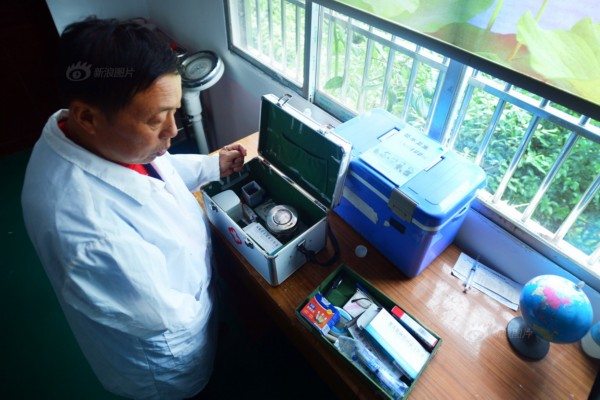Amid a worsening imbalance in access to health care between rural and urban areas, the central government has rolled out a series of measures to boost conditions for rural village doctors.
因城鄉(xiāng)醫(yī)療嚴重失衡,中央政府出臺了一系列改善村醫(yī)政策。
A recently released document will create a program to nurture rural clinics and give village doctors training at least twice a year. The program will also allow rural doctors to work at municipal and provincial hospitals and raise subsidies for village doctor practices.
近日公布的文件顯示,中國將發(fā)展農村診所,每年至少為村醫(yī)進行兩次培訓。該項目將允許村醫(yī)到省市醫(yī)院工作,并提高村醫(yī)補助。
Since China’s reform era, the number of medical practitioners in rural areas has taken a dramatic decline.
隨著中國進入改革時代,村醫(yī)人數(shù)顯著下降。

In the southwestern region of Guangxi alone, some 7,400 village doctors left their jobs between 2009 and 2011, according to Qian Xueming, a top government advisor.
根據(jù)政府資深顧問錢學明稱,在2009-2011年間,僅在中國西南部省份廣西省就有約7400名醫(yī)生離職。
According to a report by Capital Medical University, more than one-quarter of the villages in Beijing’s rural areas lacked a clinic in 2012.
根據(jù)首都醫(yī)科大學的報告,2012年北京農村地區(qū)的“空白村”就超過了四分之一。
The State Council has announced a target to have one doctor for every 1,000 people in rural areas by 2020, with each to have at least attained a degree from a vocational medical school.
國務院制定目標,到2020年農村地區(qū)每千人必須配備一名鄉(xiāng)村醫(yī)生,每名村醫(yī)至少具備醫(yī)學職業(yè)技術學院學歷。
For Caixin Online, this is Diana Bates.
這是戴安娜·貝茨為您帶來的財新新聞報道。
譯文屬可可英語原創(chuàng),未經(jīng)允許,不得轉載。











